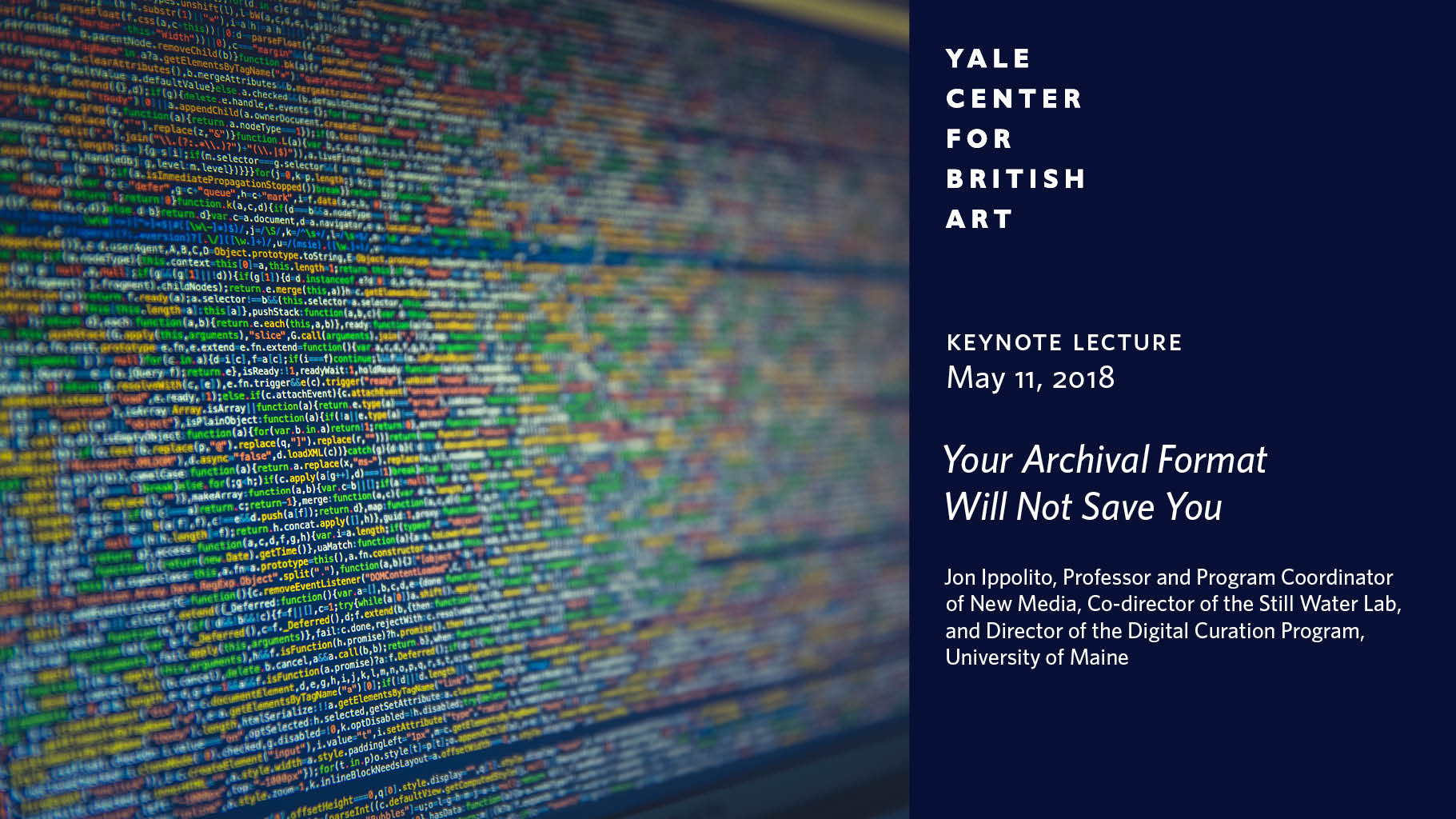Your Archival Format Will Not Save You
Keynote Lecture
May 11, 2018
Jon Ippolito, Professor and Program Coordinator of New Media, Co-director of the Still Water Lab, and Director of the Digital Curation Program, University of Maine
From the 1700s forward, solander boxes, flat files, and climate-controlled vaults were the mainstays of an artist’s archive. The last fifty years have seen these analog bulwarks against decay displaced by a successive wave of digital counterparts, from boxes of videotapes to shelves of hard drives to cloud storage subscriptions. To cope with this rotating panoply of obsolescing hardware, professional archivists have increasingly focused on saving bits instead of boxes, digitizing analog art materials and extracting bits from floppy drives and CD-ROMs to save them in so-called archival formats.
Each archival format is designed to be universal, self-contained, and platform independent, distilling images, movies, and websites into an immaterial medium free of the dependencies that plague specific hardware like Dell, DAT, or Digibeta. Sprinkle some metadata and funding on archival files, and the original artworks, or ephemera, are supposed to spring back to life for exhibition and/or scholarly review.
This keynote aims to debunk this pipe dream, considering specific cases where today’s archival formats completely fail to produce their intended benefit. Drawing on themes from the book Re-collection: Art, New Media, and Social Memory (re-collection.net), the talk will conclude with alternative strategies that are expansive and creative enough to capture the vibrancy that makes the art of our era worth preserving in the first place.
